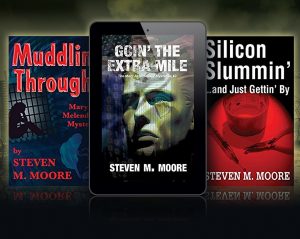“Fascist States of America” Series #4: The fascist Supreme Court…
August 13th, 2021[Note: This series will focus entirely on combatting fascism in America and around the world with my only weapon, words. (I’m not an NRA member!) It’s not antifa per se; it’s pro democracy. If you recognize words blasting your political preferences here, you’re part of the problem! To the rest of you, don’t worry about me. The fascist plutocracy of the 0.1% doesn’t do their own dirty work; and their toadies who do, don’t read very much, like their lord and savior, Donald J. Trump. So I doubt these essays will even hurt my book sales, mostly because that same plutocracy has already determined they will be low!]
By unfairly blocking Merrick Garland, Obama’s nominee to the Supreme Court of the US (SCOTUS), Mitch McConnell aka Moscow Mitch aka Merkle the Turtle aka The Grim Reaper began turning US courts into fascist servants of the plutocracy. Wannabe fuehrer Trump eventually named three hard-right fascists, Neil Gorsuch, Brett Kavanaugh, and Amy Coney Barrett, to SCOTUS, tilting the court far to the right and endangering American democracy for many years to come.
Those three fascist judges were just frosting on the cake, though. McConnell also succeeded in stacking lower federal courts with these orcs. The whole federal judiciary now has a fascist tilt that makes courts the places where progressive policies go to die. This has always been a wet dream of the American plutocrats. Elected officials are transitory; federal judges are there for life, or until they retire or are so ill they can’t put on those spiffy black robes. The plutocracy knew this flaw existed in US government, and. like the Senate and the Electoral College, they knew how to exploit it. They just needed willing lackeys like Moscow Mitch and Il Duce (Trump) to do their dirty work for them, the first to approve them in the fascist Senate and the second to nominate them.
Along with the Senate and the Electoral college, SCOTUS and that autocratic tilt now provides three solid legs to support fascism in America. No matter what Biden, Schumer, or Pelosi do, the fascist plutocracy can continue to demolish American democracy. But they’ll do so at their own peril! Their devious machinations can’t go on forever. Some are beginning to realize that.
Why not? Remember the crowds dancing in the street in glee when Trump lost big time and Biden won? I was in the hospital at the time. Cheers filled the rooms, wards, and corridors too. Outside there were cheers and car parades with horns blaring You see, the fascist plutocracy is a minority—that 0.1% out to dominate American democracy represents very few fascists. And their toadies who implement their cruel and insidious plans find that a fascist plutocracy in America appeals to fewer and fewer Americans. Plutocrats and fascists are an endangered species, and history is against their ilk. Demographics will vanquish them in the end, one way or the other.





